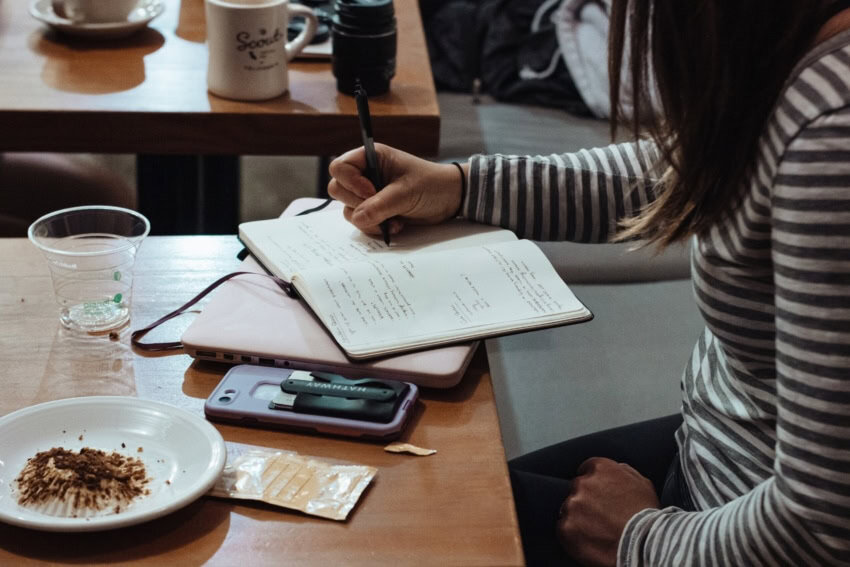Dumbing Down: What to Do The Night Before the Exam?
Updated: June 19, 2024

There is no doubt about it — exams can be stressful. The night before the exam can be especially hard as you try to fall asleep and may worry about whether you have prepared enough or if you could have done more. In having such thoughts, you are only stressing yourself out more than necessary. Instead, you can choose to follow some of these best practices the night before an exam so that you can remain calm, wake up feeling refreshed, and enter the test ready to do well.
Before we get to some best practices, let’s talk about what you can do well before the night before an exam in order to be ready. You’ll want to be proactive in all your endeavors and plans to study in advance. This means being able to manage your time effectively, as it will help you feel more confident on the big day.
When you are taking any course, you should outline the deadlines and test dates in the beginning and work backwards with material to break it down into smaller chunks and learn along the way, rather than cramming around the test time. When you feel like you can own the material, then you will have no reason to stress the night before an exam.
Regardless of the steps you take to study in advance, here are a few tips and tricks to try around exam time, and specifically, the night before the exam.
Photo by Alex Samuels on Unsplash
Tips You Should Do the Night Before the Exam
1. Eat a healthy meal:
You should always eat as healthily as possible, but this is especially true the evening before a big test and in the day of a test. You will want to eat a balanced meal with some carbohydrates for energy, protein for brainpower and a small amount of natural sugars. Having too much sugar the night before an exam could keep you awake, and if you have high amounts of sugar before an exam, you may feel the crash during the test or it will be hard to focus.
2. Set an alarm (or two):
The worst thing you can do is miss the test! In order to avoid this, be sure to set your alarm the night before. Rather than hitting snooze consistently, set an extra alarm for a few minutes later so that if you happen to miss the first, you have a backup ready to go off and wake you.
3. Don’t drink too much water:
While it’s always important to stay hydrated, you will want to avoid drinking too much water the night before an exam as having a full bladder could wake you up during the night to use the bathroom. Sleep is really important before an exam, so you don’t want any interruptions.
4. Get enough sleep:
Sleeping helps your brain both process and retain information. It will also have you ready to go with energy the next day, so aim to get at least 7-8 hours of sleep before exam day.
5. Review study notes:
If you’ve been studying all along in bits and pieces during the course, you will feel better prepared for the test. However, it’s always a good idea to review study notes the day before an exam to refresh your memory.
6. Don’t study too late:
Going hand in hand with getting good sleep, don’t pressure yourself to stay up all night to study. Studying late may burn you out and make you more anxious, so set a good cut-off time so that you have time for a healthy dinner with some time to wind down and relax before bed.
7. Work out:
Working out increases your endorphins and helps to reduce stress levels. It’s always a good idea to do some form of physical activity that you enjoy. Whether that means going for a run, taking a short walk, practicing yoga or taking a group exercise class, getting in physical activity will positively affect both your physical and mental health, and also likely help you sleep better throughout the night.
8. Prepare for the morning:
When you wake up on your exam day, you don’t want to have to worry about anything. That’s why it’s a good idea to prepare the night before. This can include packing a snack, preparing breakfast in advance (overnight oats are always a good idea), and even laying out your clothes. You can also make sure your bag is packed with any tools you need (such as calculators, pens, pencils, etc.) so that when you wake up, you’re ready to go!
9. Visualize positive outcomes:
Visualization techniques are powerful tools to help envision an outcome before it happens and manifest positivity. From athletes to politicians and more, many successful people use this mental tool to create their reality, and as a student, you can, too. Visualizing positive results can help you achieve your goals and stay calm. By seeing yourself taking the test and doing well before it happens, you can help to transform your beliefs into reality.
10. Relax:
While it may sound easier said than done, you want to be relaxed before an exam. In a relaxed state of mind, you can think more clearly, access your memory, and be best prepared for an exam. In order to relax the night before or the day of an exam, try some of the following: exercise, meditate, do yoga, lessen caffeine intake, decrease sugar consumption, burn a candle, listen to music, go for a walk, etc. Everyone finds different ways to relax, so be sure to do whatever works best for you.
Things to Remember
In order to be prepared for exam day, write yourself a checklist of things to remember. This could include:
- Pens
- Pencil
- Paper
- Scantron or testing booklet (if required)
- Eraser
- Calculator (if allowed)
- Cheat sheet (if allowed)
Other useful items to pack for before and after an exam include:
- Phone
- Wallet
- Keys
- Water
- Healthy snack
Again, try to have everything prepared the night before so that when it comes time for exam day, you are not worried about trivial matters.
Photo by Max van den Oetelaar on Unsplash
The Bottom Line
It’s important to remember that exams are not meant to scare or intimidate you. Rather, they are designed to test your knowledge of material that you have already been taught, so it’s best to stay up-to-date in classes and manage your time wisely so that you always feel prepared. Everyone has different study techniques and useful resources, but when you find your methods, you can stick to them and be successful!



